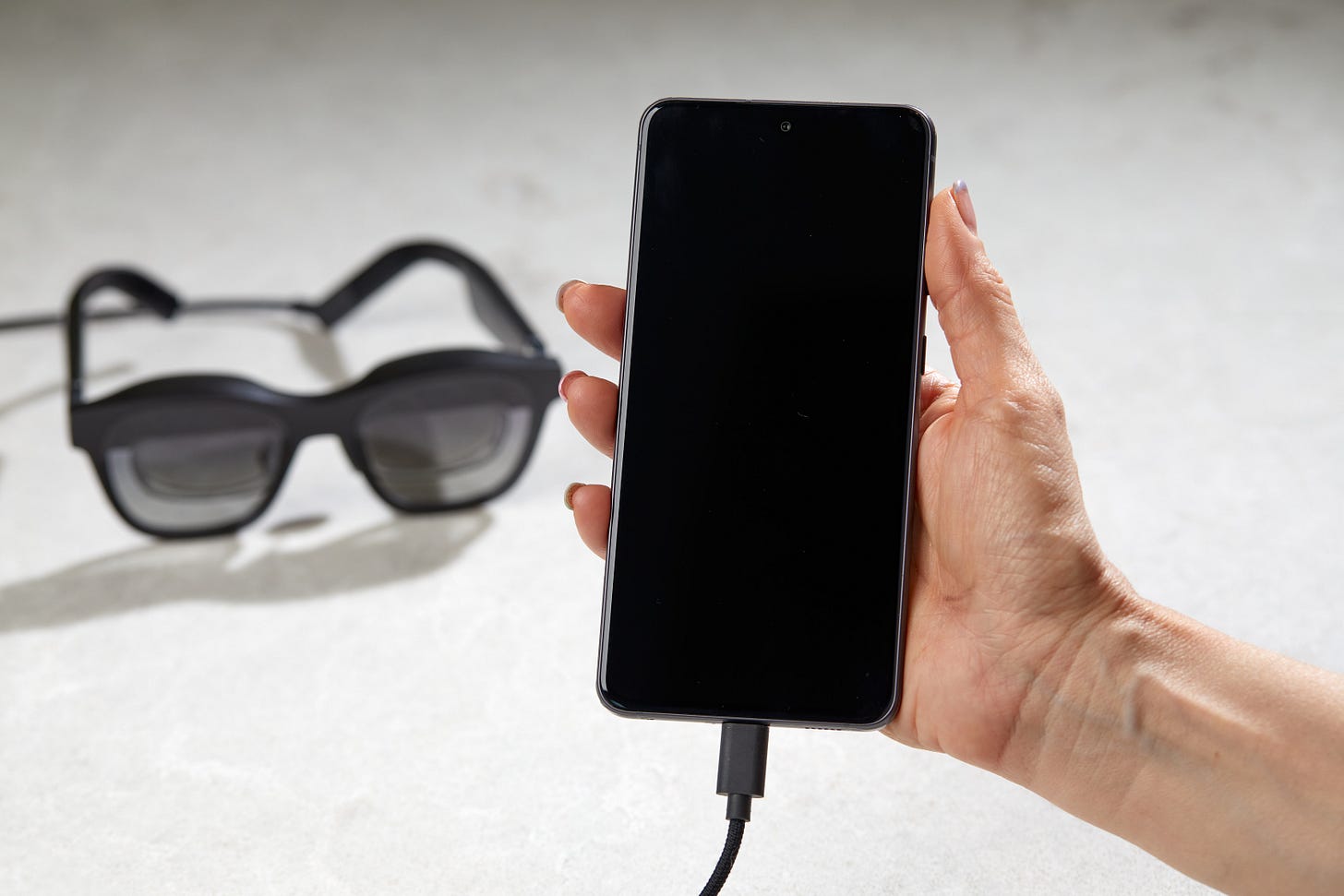XRAI Glass - a subtitling minnow takes on the tech giants
If you want to see the future, look at assistive technology. Often gadgets aimed at helping people with disabilities end up having mass market appeal because so much thought has gone into the user interface.
Take XRAI Glass, an augmented reality headset launched last November. Dan Scarfe had the idea for the product when he visited his family at Christmas 2021 and realised that his grandfather was unable to join in the conversation because, like most 97 year olds, his hearing wasn’t up to it. Dan, who had moved to Canada when he sold the Microsoft cloud consulting business he had founded, saw the opportunity for his next venture.
He teamed up with Mitchell Feldman, a former rival in the consulting world, and Jacqui Press who was born profoundly deaf and is an expert lipreader. The product they have launched produces instant subtitles projected on a pair of glasses, enabling the hard of hearing to participate fully in conversations.
But XRAI Glass does far more than that. It can do live translation into nine languages, and if you say “hey XRAI” it can provide a summary of your conversation, or answer all sorts of questions, perhaps projecting recipe instructions in front of your eyes as you cook.
Rather than build their own technology what Dan Scarfe and his colleagues have done is assemble a platform - the glasses are made by a company called Nreal, they are linked via a wire to an Android smartphone, which talks to a cloud transcription service, and the AI engine powering the “hey XRAI” virtual assistant is - you’ve guessed it - ChatGPT.
At Mobile World Congress in Barcelona this week XRAI and the chip giant Qualcomm, whose Snapdragon processor powers the glasses, announced plans to make the system wireless, which would certainly be a lot more user-friendly.
For the last decade, smart glasses using augmented reality to serve up useful information overlaid on the real world have been the next big thing. So far, they have proved of limited appeal - Google Glass was shelved when users (including me) decided they looked idiots wearing it, Microsoft’s Hololens is making only slow headway amongst enterprise customers.
Apple is said to be on the verge of unveiling a headset that will cost around $3000 - XRAI Glass retails at roughly $400 - though the rumour-mill says the launch has been pushed back from the spring to the summer. XRAI Glass is not fully compatible with the iPhone so Apple’s product, which will attract a lot of attention when it finally lands, may threaten the viability of the young company.
But Dan Scarfe remains positive. Having largely funded the company from their own resources until recently, he and his collaeagues are now seeking to raise what he describes as “a ton of cash” to “tell the world about this incredible product.” It seems unlikely that even the scrappiest of startups can take on the might of Apple and the other tech giants - but wouldn’t it be great if the device which helped Dan’s granddad get back into the family conversation turned out to be a hit?



Blimey the anti vax American Trumpy wingnuts have arrived. No thanks
Great feature and very interesting technology.
Hope to see much more of this.
I like the less obtrusive approach this takes and presumably can be adapted to most glasses forms. Opens up opportunities with 3D printed frames customisation.
Also has use cases as a conversation recorder for so many applications, though privacy would be an issue. Aside from these, it really is the ideal product for those marital discussions “no you said that….no I didn’t” 😁